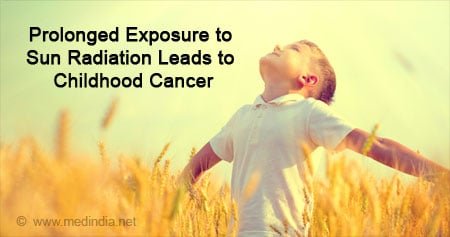Shedding Light on Types, Treatment, and Hope About Childhood Cancers
Introduction
A diagnosis of cancer is a distressing experience, especially when it involves a child. Many questions arise, such as who will treat the child, will the child recover, and what does this mean for the family? While not all questions have immediate answers, this information serves as a starting point to understand the basics of childhood cancer, its types, causes, and treatment.

RELATED ARTICLE Childhood Cancer (Pediatric Cancer)
Types of Cancer in Children

In the United States in 2023, an estimated 9,910 new cases of cancer will be diagnosed among children aged 0 to 14 years, with around 1,040 children expected to succumb to the disease. Although there has been a 70 percent decline in cancer death rates for this age group from 1970 to 2020, cancer remains the leading cause of death from disease among children.
RELATED ARTICLE Most Common Types of Childhood Cancer
Causes of Childhood Cancer
Cancers in children, like those in adults, are believed to result from gene mutations leading to uncontrolled cell growth. Unlike adults, these mutations in children may be inherited, accounting for about 8 to 10 percent of childhood cancers. Identifying environmental causes is challenging due to the rarity of childhood cancer and difficulty determining early exposures.

Common Childhood Cancer Types
Childhood cancers encompass various categories, with an estimated 415 cases per 1 million children and teenagers in 2023. The main categories include leukemias, lymphomas, brain tumors, and solid tumors.
- Leukemias:

Leukemias are the most prevalent childhood cancers, affecting the blood and bone marrow. Acute lymphoblastic leukemia (ALL) and acute myeloid leukemia (AML) are common subtypes.
- Lymphomas:
Lymphomas, arising in the lymphatic system, include Hodgkin lymphoma and non-Hodgkin lymphoma. Hodgkin lymphoma is more common in teenagers, while non-Hodgkin lymphomas encompass various types.
- Brain Tumors:

Brain tumors, benign or malignant, are frequent among children. Different types exist, with an estimated 33 cases per 1 million children and 21 cases per 1 million teenagers diagnosed in 2023.
- Solid Tumors:
Solid tumors develop as cancerous cells form masses in various body parts. Examples include neuroblastoma, Wilms tumor, retinoblastoma, bone cancer (osteosarcoma and Ewing sarcoma), and rhabdomyosarcoma.
Treating Childhood Cancer
Pediatric oncology, a specialized medical field, focuses on treating children with cancer. Effective treatments exist, and not all childhood cancers are approached similarly to adult cancers. Treatments include surgery, chemotherapy, radiation therapy, immunotherapy, and stem cell transplant.
Types of Treatment
Treatment selection depends on the cancer type and stage. Surgery, chemotherapy, and radiation therapy are common. Immunotherapy and stem cell transplant may also be employed. Clinical trials play a crucial role in advancing treatment options for children.
MORE RELATED ARTICLE Childhood Cancer: Types of Treatment
Latest Information
NCI’s PDQ® pediatric treatment cancer information summaries provide insights into diagnosis, staging, and treatment options. Childhood Cancer Genomics explores genomic alterations in pediatric cancers, informing therapy and prognosis.

Clinical Trials
Clinical trials evaluate new treatments’ safety and efficacy. COG-affiliated hospitals, often treating children with cancer, participate in NCI-supported Children’s Oncology Group trials. Information specialists at NCI’s Cancer Information Service can assist in identifying ongoing trials.
Treatment Side Effects
Children may experience unique treatment-related challenges. Late effects, health problems occurring post-treatment, are of particular concern for childhood cancer survivors. Management strategies are crucial, considering the lasting physical and emotional impact of childhood cancer treatment.
Where Children Are Treated

Children with cancer are often treated at specialized centers. NCI-supported Children’s Oncology Group member institutions provide expert care and conduct clinical research. The NIH Clinical Center in Bethesda, Maryland, focuses on translational research for children and young adults with cancer.
READ MORE INTERESTING ARTICLES Screening Early Lung Cancer Making Healthcare Saves Lives
Coping with Cancer
Adjusting to a child’s cancer diagnosis is challenging. Support for families includes tips for discussing cancer with children, preparing them for changes, helping siblings cope, supporting parents, and collaborating with the healthcare team.

Survivorship
In 2020, there were nearly 496,000 childhood cancer survivors in the U.S. Follow-up care is essential, including treatment summaries and survivorship care plans. Childhood cancer survivors may face late effects, requiring management strategies discussed on NCI’s Care for Childhood Cancer Survivors page.
Research
NCI supports extensive research on childhood cancers, focusing on causes, biology, patterns, and optimal treatments. Clinical trials and follow-up studies contribute to advancing knowledge and improving outcomes for children with cancer. For more information, explore Childhood Cancers Research